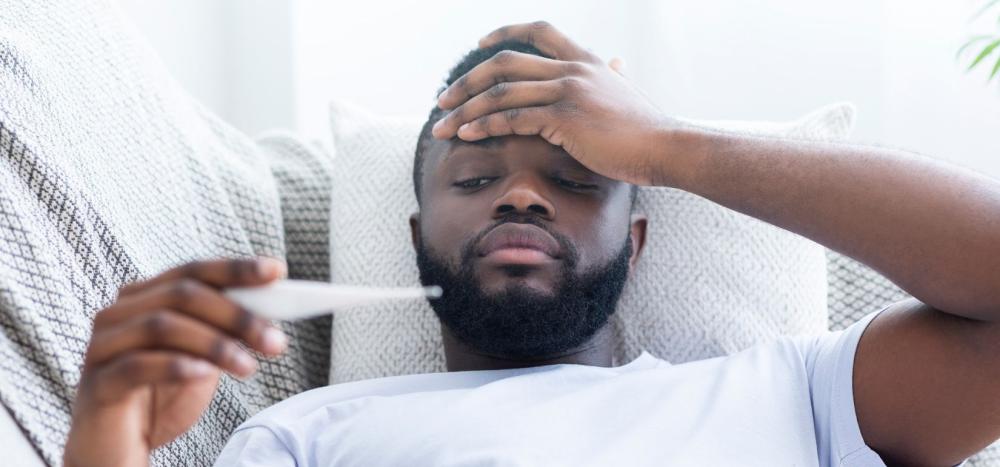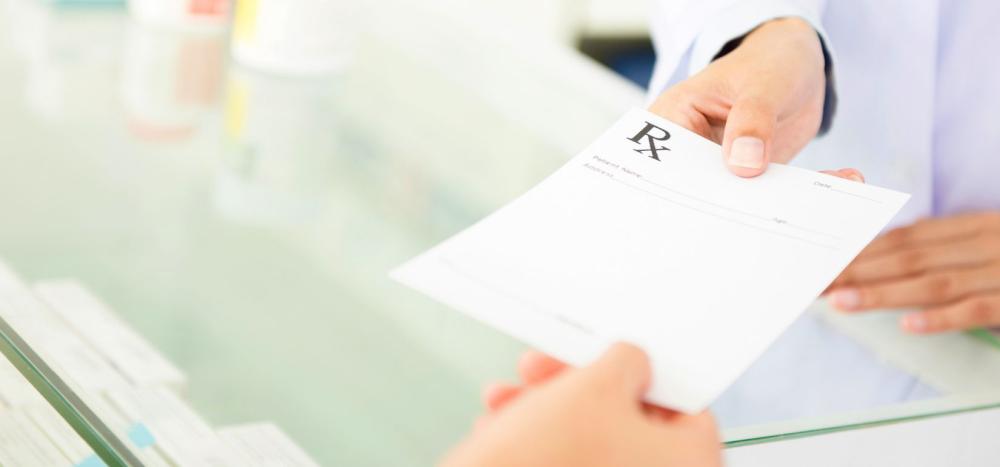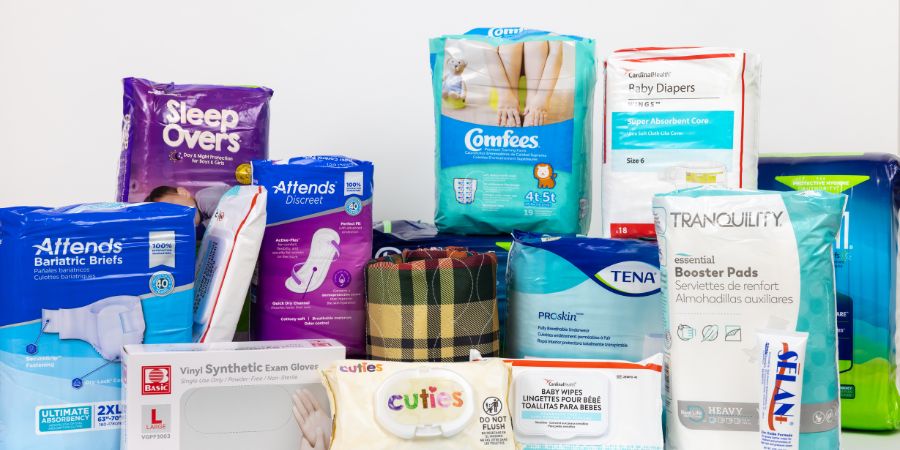Key Takeaways:
- More than 25 million adults in the United States experience urinary incontinence.
- Over 78 million adult women (62%) ages 20 and older have urinary incontinence.
- 15.1% of men ages 20 and older experience urinary incontinence.
- Incontinence increases as we age.
- Incontinence is still a “shameful” topic to most people, and they avoid telling healthcare providers about symptoms.
- Incontinence is often associated with medical conditions (Multiple sclerosis, PTSD, enlarged prostate, etc.) or special needs (autism, Spina bifida, etc.).
- Incontinence is common but not normal.
- Incontinence is usually curable.
Check Your Eligibility
2 Easy Steps
Discover the continence care essentials available through your Medicaid plan.
Navigation
Urinary Incontinence & Its Prevalence
Urinary incontinence is defined as a loss of bladder control. This loss of control leads to urine leakage. People who have urinary incontinence usually have light to heavy leaks and experience one or more types of incontinence. More than 25 million adults in the U.S. have incontinence.
According to a survey by Aeroflow Urology, 62% of women ages 20 and over have urinary incontinence, and around 15% of men in the same age group experience it.
Causes
Causes of incontinence can include:
- Diseases
- Certain medications.
- Changes in hormones, such as estrogen, during pregnancy, childbirth, or menopause.
- Constipation
- Medical conditions and family medical history.
- Obesity
- Weak pelvic floor muscles, urethra, or urethral sphincter.
- Special needs.
- Aging
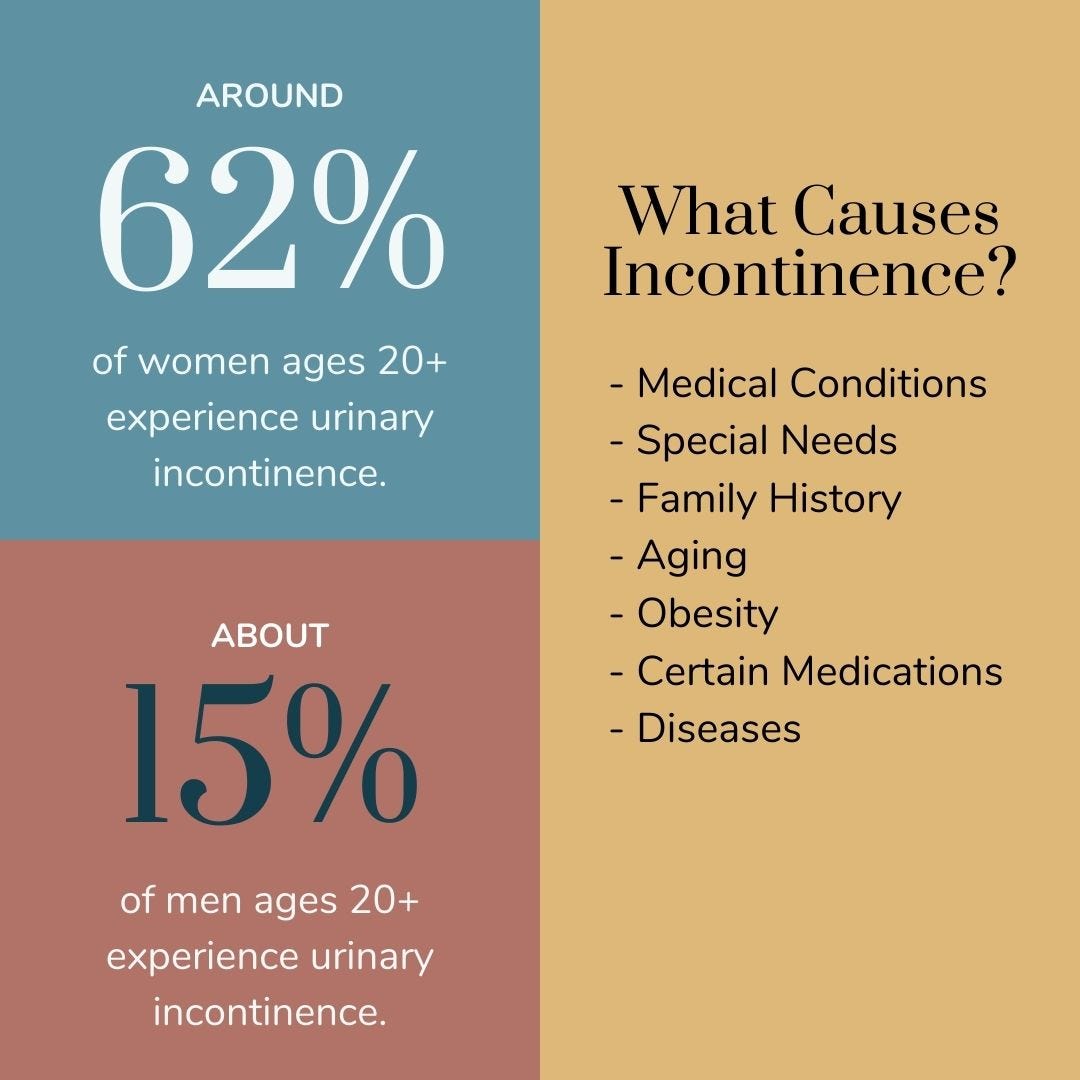

Types of Urinary Incontinence
Urinary incontinence comes in various forms. Usually, people will experience one of or a mix of the following.
Stress Urinary Incontinence: Stress incontinence occurs when urine leaks as you laugh, cough, sneeze, bend over, or lift heavy objects.
Urge Incontinence: Loss of urine occurs due to the sudden and urgent need to urinate.
Overactive Bladder: Occurs when you need to urinate more frequently and void more often than normal.
Overflow Incontinence: Experiencing urine dribbles throughout the day.
Mixed Incontinence: Experiencing more than one type of urinary incontinence at the same time.
Incontinence is Common, But Not Normal
Yes, millions of adults experience incontinence, but that doesn’t mean it’s normal. Continence is one of the essential functions of our bodies, and when we have bladder control problems, it can impact our quality of life.
What is normal is discussing incontinence symptoms with your healthcare provider.
However, embarrassment still surrounds the topic of urinary incontinence, even though so many people in the US manage it daily.
You should never be ashamed to discuss symptoms with your healthcare provider or a specialist, such as a urologist. They can offer excellent advice, product recommendations, and even exercises to incorporate into your routine to help lessen incontinence symptoms because it is curable.
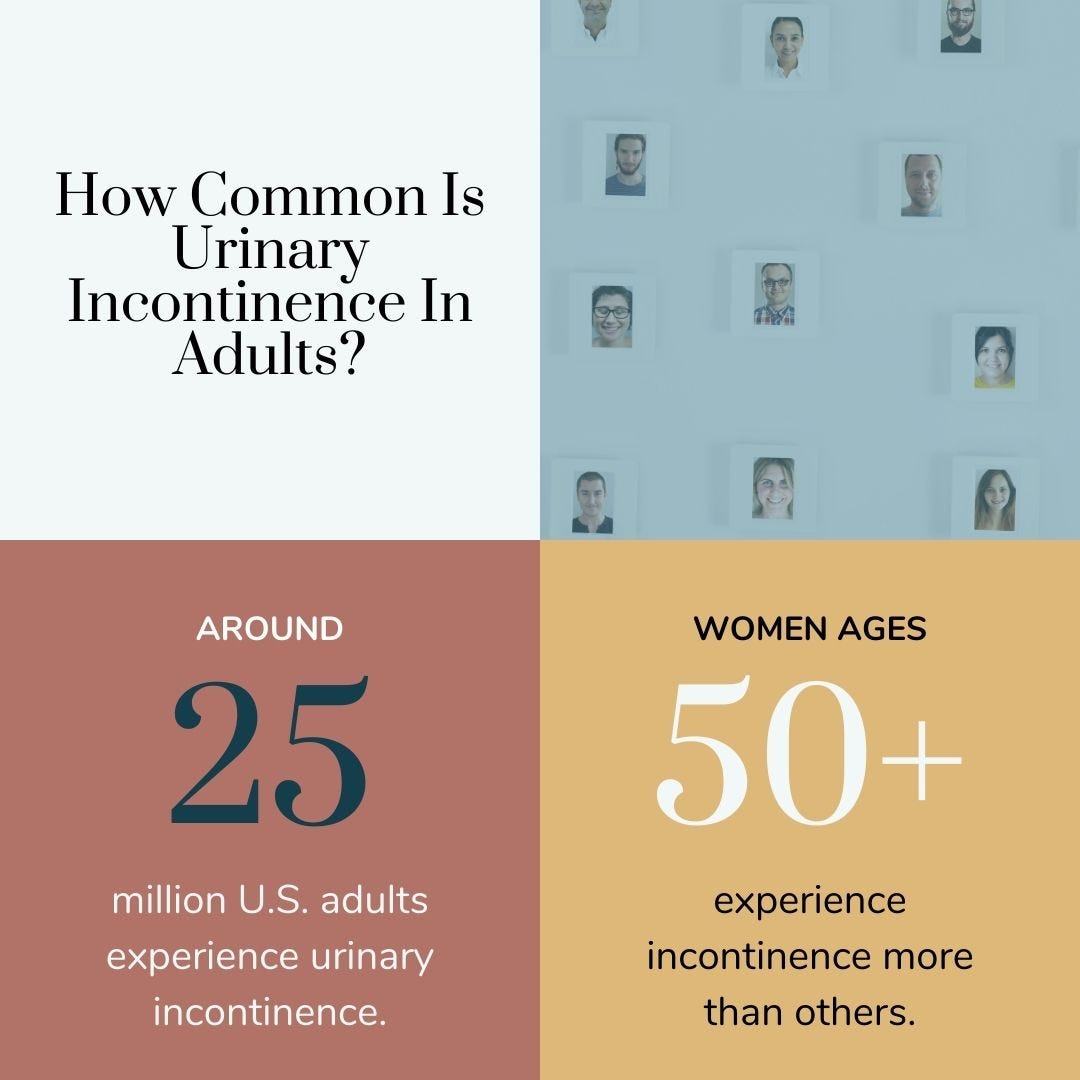

Tips on Managing Urinary Incontinence
Use these helpful tips to manage urinary incontinence.
1. Choose Bladder-Friendly Foods
Believe it or not, the foods you eat affect your bladder function. While certain foods can make your bladder happy, other foods irritate it.
Helpful Bladder Foods
- Whole-grains.
- Fibrous foods.
- Fruits
- Fresh vegetables.
Bladder-Irritating Foods
- Spicy foods.
- Dairy
- Citrus fruits (lemon, lime, etc.)
Other things that can harm your bladder include:
- Alcohol
- Caffeine
- Dehydration
Stay hydrated, eat healthily, and your bladder will thank you.


2. Let Incontinence Products Take Stress Away
Using incontinence products, such as adult briefs or bladder control pads, can make managing incontinence easier.
If you’re worried about spending money on incontinence products, Aeroflow Urology has you covered! We supply incontinence products that you may be eligible to receive for FREE through your Medicaid or private insurance plan.
To see if you qualify, fill out the eligibility form. It takes under five minutes.
If you qualify, you’ll get your favorite incontinence products shipped directly to your home in discreet packaging.
3. Change Your Lifestyle
Lifestyle changes can help you regain control of your bladder muscles and make you healthier overall.
Some changes you can make today:
- Exercise. Exercise keeps you healthy, and specific activities like Kegel exercises can help you regain bladder control over time.
- Maintain healthy body weight. Extra weight puts extra pressure on your bladder, which can cause incontinence.
4. Retrain Your Bladder
Try bladder training or a bladder diary to regulate your bladder contractions and urinate regularly.
5. See Your Doctor
Remember never to be ashamed when it comes to talking about incontinence. Your healthcare provider may offer you more treatment options for incontinence symptoms and diagnose what type of incontinence you’re experiencing.
How to Get Free Incontinence Supplies
Aeroflow Urology provides incontinence supplies to people with incontinence. We can ship items directly to your front door at no cost, so you don’t have to leave your home.
To see if you qualify, fill out our form, and a Continence Care Specialist will reach out to you.
They’ll answer any questions you have and help you choose the best supplies for you.
Each month, your products will arrive in unmarked boxes.
Urinary Incontinence in Women. (2021, August 8). Www.hopkinsmedicine.org. https://www.hopkinsmedicine.org/health/conditions-and-diseases/urinary-incontinence/urinary-incontinence-in-women#:~:text=Over%2025%20million%20adult%20Americans
Information provided on the Aeroflow Urology website is not intended as a substitute to medical advice or care from a healthcare professional. Aeroflow recommends consulting your healthcare provider if you are experiencing medical issues relating to incontinence.




